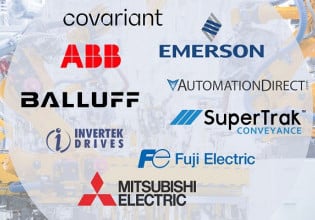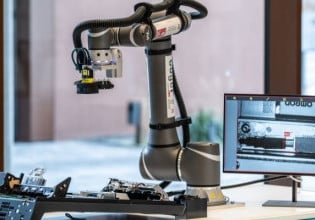K
This message is being forwarded from Stephen Mason [[email protected]]:
> -----Original Message-----
> From: Stephen Mason [SMTP:[email protected]]
> Sent: Monday, March 27, 2000 1:25 PM
> To: [email protected]
>
> I am new to this group so forgive my ignorance. I thought the whole issue about using Ethernet for control was the fact that Ethernet is not
deterministic and is susceptible to data collisions. Am I wrong about this?
Isn't that why everyone who uses Ethernet for control has to bastardize it? I would be cautious about using Ethernet on anything that requires
real time I/O control. I am certainly in agreement with the statement that if Linux is to take off as a PLC operating system, it must support the traditional I/O in the marketplace from the traditional vendors, Rockwell, Siemens, etc...
_______________________________________________
LinuxPLC mailing list
[email protected]
http://linuxplc.org/mailman/listinfo/linuxplc
> -----Original Message-----
> From: Stephen Mason [SMTP:[email protected]]
> Sent: Monday, March 27, 2000 1:25 PM
> To: [email protected]
>
> I am new to this group so forgive my ignorance. I thought the whole issue about using Ethernet for control was the fact that Ethernet is not
deterministic and is susceptible to data collisions. Am I wrong about this?
Isn't that why everyone who uses Ethernet for control has to bastardize it? I would be cautious about using Ethernet on anything that requires
real time I/O control. I am certainly in agreement with the statement that if Linux is to take off as a PLC operating system, it must support the traditional I/O in the marketplace from the traditional vendors, Rockwell, Siemens, etc...
_______________________________________________
LinuxPLC mailing list
[email protected]
http://linuxplc.org/mailman/listinfo/linuxplc






